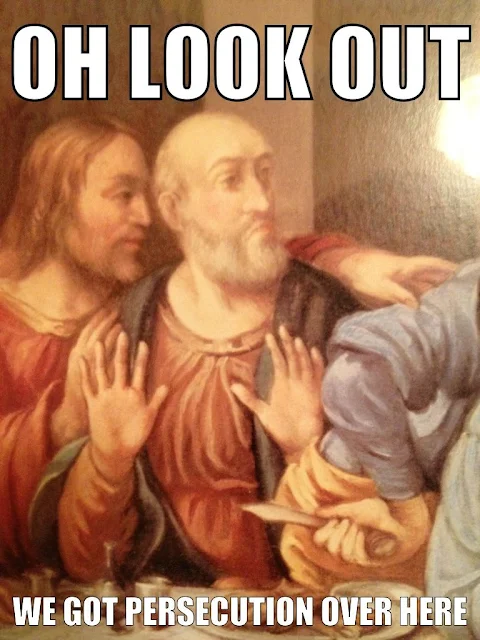From the One True Person, Dr Robert Thiel
The one group that best represents the remnant of the Philadelphia portion of
the Church of God (Revelation 3:7-13) in the 21st century is the Continuing
Church of God.
The Continuing Church of God is the only organized church that we are aware
of who officially does all the above.
The compelling reason to want to be part
of us is not that we are perfect, but that we do teach in accordance with the
Bible and the beliefs and practices of Jesus’ early followers. Most churches
have some truth, but none other appears to be the “pillar and ground of the
truth” ...
We are not just one of scores of Church of God groups, but we are the only
international Philadelphian organization. We are also the leader of the
Philadelphian remnant that God is using to go through doors He opens
(Revelation 3:7-8) for the fulfillment of Matthew 24:14, Romans 11:25, etc. in
the final phase of the work.
In the 20th century, the old Radio Church of God grew at an annualized rate of
30% per year for decades. Not only has the Continuing Church of God exceeded
that, it has been the fastest growing xWCG COG in the 21st century
Will you do what biblically you realize you should do and support the Continuing Church of God or be a hearer only, deceiving yourself? Can you believe the work that God is doing (Acts 13:41)? Do you not wish to support the Continuing Church of God as we continue to preach the gospel of the kingdom to the world as a witness (Matthew 24:14) as well as teach all Jesus commanded (Matthew 28:19-20)? Are you ready to be really part of the true, and most faithful, Christian church?
https://www.cogwriter.com/WhereistheTrueChristianChurchToday.pdf
======================
The Competition Disagrees
https://en.wikipedia.org/wiki/One_true_church
The expression "one true church" refers to an ecclesiological position asserting that Jesus gave his authority in the Great Commission solely to a particular visible Christian institutional church—what is commonly called a denomination. This view is maintained by the Catholic Church, the Eastern Orthodox Church, the Oriental Orthodox communion, the Assyrian Church of the East, the Ancient Church of the East, the Christian Churches/Churches of Christ, the Churches of Christ, and the Lutheran Churches,[1] as well as certain Baptists.[2] Each of them maintains that their own specific institutional church (denomination) exclusively represents the one and only original church. The claim to the title of the "one true church" relates to the first of the Four Marks of the Church mentioned in the Nicene Creed: "one, holy, catholic, and apostolic church". As such, it also relates to claims of both catholicity and apostolic succession: asserting inheritance of the spiritual, ecclesiastical and sacramental authority and responsibility that Jesus Christ gave to the apostles.[3][4]
...
The Roman Catholic Church teaches that Christ founded only "one true Church", and that this one true Church is the Catholic Church with the bishop of Rome (the pope) as its supreme, infallible head and locus of communion.[8] From this follows that it regards itself as "the universal sacrament of salvation for the human race"[9] and the "only true religion".
...
The Lutheran Church views itself as the "main trunk of the historical Christian Tree" founded by Christ and the Apostles, holding that during the Reformation, the Church of Rome fell away.[1] The Augsburg Confession found within the Book of Concord, a compendium of belief of the Lutheran Churches, teaches that "the faith as confessed by Luther and his followers is nothing new, but the true Catholic faith, and that their churches represent the true catholic or universal church"
...
Many Baptists, who uphold the doctrine of Baptist successionism (also known as Landmarkism), "argue that their history can be traced across the centuries to New Testament times" and "claim that Baptists have represented the true church" that "has been, present in every period of history".
...
The Amish, as with other Anabaptist Christians, believe that "the established church became corrupt, ineffectual, and displeasing to God."[35] The Amish believe that the true church is pure and separate from the world:
...
Methodists affirm belief in "the one true Church, Apostolic and Universal", viewing their Churches as constituting a "privileged branch of this true church".[43][44] With regard to the position of Methodism within Christendom, the founder of the movement "John Wesley once noted that what God had achieved in the development of Methodism was no mere human endeavor but the work of God. As such it would be preserved by God so long as history remained
...
The Seventh-Day Adventist Church (SDA Church) holds itself to be the one true church.[49] It specifically teaches that "it is the 'final remnant' of His true church [spanning] the centuries".[50] Seventh-day Adventist eschatology promulgates the idea that in the end times, there will be a "growing opposition between the 'true' church and the 'apostate' church."[51] ... The SDA Church, in their view, "has drawn substantially on the biblical text, especially the books of Daniel and Revelation, to argue for its own status as the true remnant church which has a divine commission both to exist and to preach its apocalyptic message to the world at large."[
...
In 1830, Joseph Smith established the Church of Christ in the belief that it was a restoration of original Christianity. In 1831 he declared it to be "the only true and living church upon the face of the whole earth".
...









